2019 Lenten Snapshots
During the 2019 Lenten season, we’ll share the work of the Sisters of Notre Dame de Namur from around the world. We hope you in turn will share their work with your family, friends, students and faculty by email or by posting each Lenten Snapshot on a bulletin board. If you are interested in the Lenten Handout, please click here. Click here for the Lenten prayer card.
LENTEN SNAPSHOT #2
In the African countries where our Sisters of Notre Dame de Namur live and work, clean water is an ongoing challenge. With the digging of wells (bore holes) and the installation of photovoltaic (solar energy) systems, however, progress is being made. This second Lenten Snapshot focuses on two communities in Democratic Republic of the Congo (DRC) and our Sisters’ work with clean water facilities.
Sister Henriette lives and works in Lemfu and Sister Patience is based in Kinsaku. They are part of a new ministry in Congo dedicated to developing reliable clean water sources in their respective communities.
In Lemfu and Kinsaku, there are no proper sources of water; instead rain catchment from roof gutters fills cisterns. During the rainy season, there is adequate rainfall; however, during the dry season, water shortages exist. The water is quite filthy as dirt is picked up from the atmosphere, roofs, gutters and pipes and the concrete cisterns themselves. Bacteria and microorganisms thrive in this environment. Water filtration and purification becomes a necessity. Because cisterns are below ground, water then has to be taken from the cistern bucket-by-bucket, or pumped providing yet another challenge to address.
Lemfu
Lemfu was established in 1905 in what was known as the Belgian Congo and is one of the oldest Sisters of Notre Dame de Namur communities. Today, Lemfu includes a convent, large primary and secondary schools and a medical facility. Sister Henriette directs the clean water and photovoltaic project in Lemfu where the system continues to be modernized and enhanced.
To supplement the rain catchment system, a 44-meter deep well with a submersible pump was installed in August 2018. The quality of the water has been tested and is excellent.
The original photovoltaic system was installed in 2010 and has been providing electricity to the hospital as well as the schools, convent and community.
Future plans include the addition of above ground storage and a refurbished and upgraded photovoltaic system to handle the electrical power requirement for water pumping. Lead-acid batteries will be replaced with newer, more efficient lithium-ion batteries that are maintenance free. The batteries will last 15 years and can be discharged to 0% every day.
Kinsaku
Kinsaku, is a very small village in remote, western Congo. The Sisters run a large school at this site and Sister Patience directs the work to bring a reliable, consistent source of clean water to this community.
In Kinsaku, water has been a seasonal commodity; it is more plentiful during the rainy season but scarce during the dry season. A rain catchment system is used during the rainy season and when this water runs out, hardship sets in. The project Sister Patience oversees is intended to provide a more dependable source of clean water. It consists of a water collection, pumping, purification and containment system using the nearby spring.
During the Lenten season, we are most grateful for your support in helping our Sisters educate for life as well as provide clean water to our communities in Lemfu and Kinsaku.
Making known God’s goodness,
The Sisters of Notre Dame de Namur
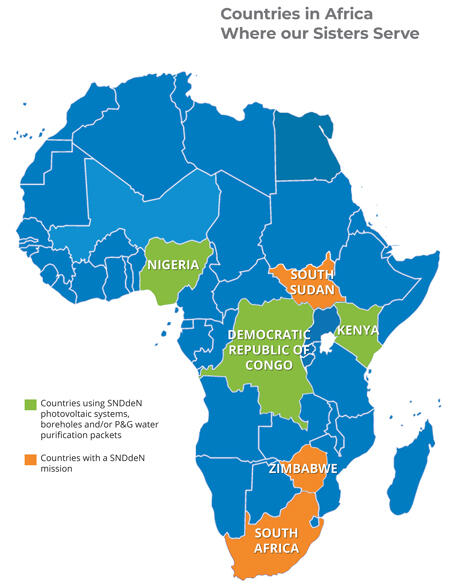
Countries in Africa where our Sisters work and serve
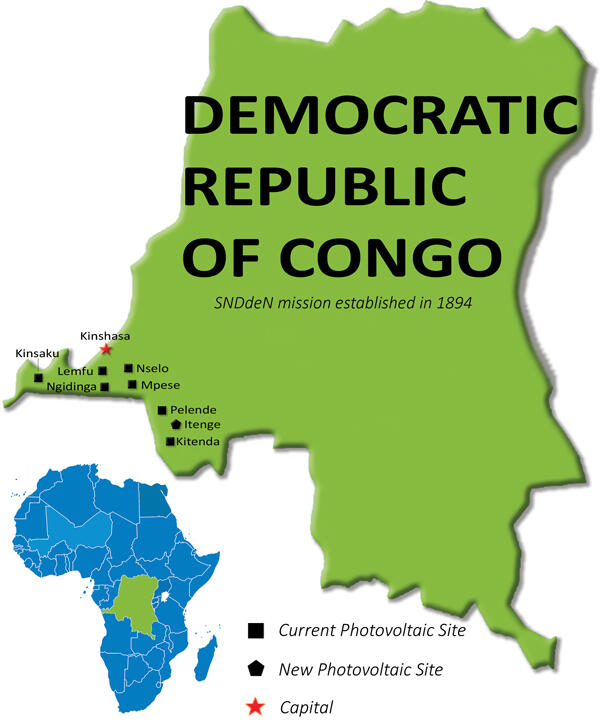
The DRC map with Lemfu and Kinsaku Sites
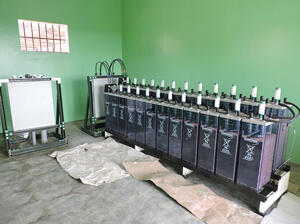
Smaller and more efficient lithium-ion batteries will replace lead-acid batteries like these in Lemfu.
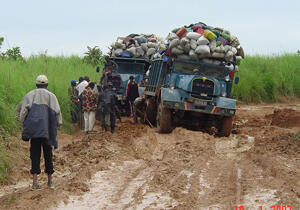
Large trucks, like the ones used to transport equipment to Lemfu, make their way along muddy roads.
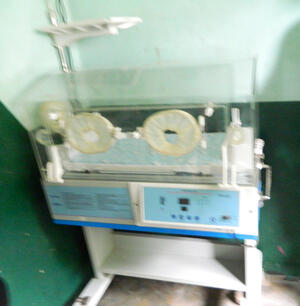
Photovoltaic systems provide electricity to power an incubator for newborns at the Lemfu medical facility.
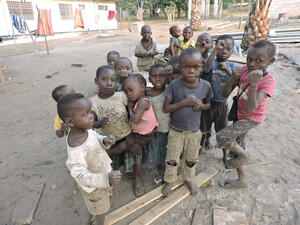
Kinsaku village children
